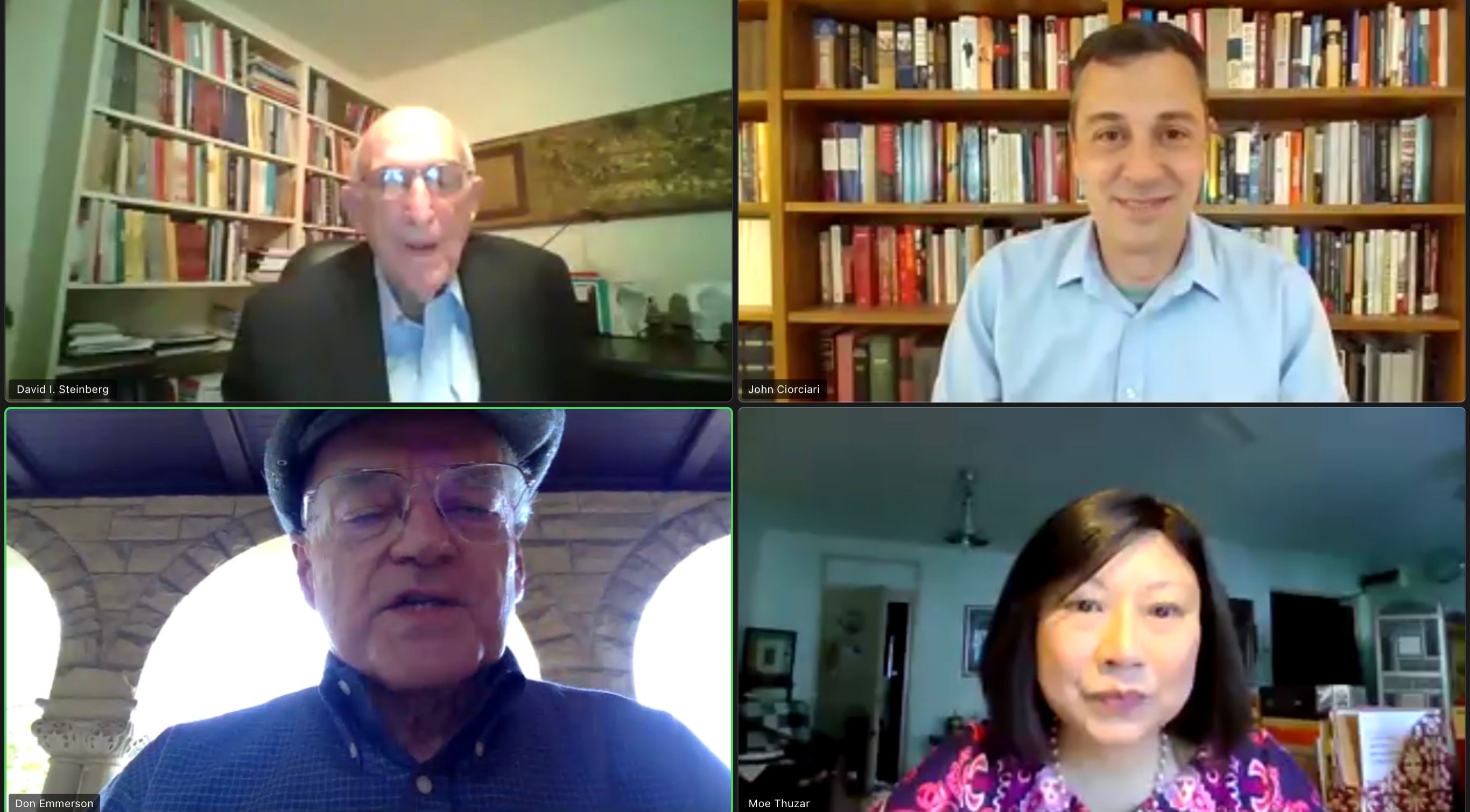Experts at a Wednesday event on the crisis in Myanmar urged the United States and other countries to provide substantive aid to proponents of democracy in Myanmar, arguing that the most recent coup constitutes a human rights crisis.
The coup on Feb. 1 restored full military rule in a country that has repeatedly alternated between democratic rule and military dictatorship. On that day, the Myanmar military seized control of the country and declared a year-long state of emergency. Security forces have detained thousands of civilians and have killed over 700 people, including more than 40 children.
The Southeast Asian country became independent in 1948 from British colonial rule. Since then, coups have taken place in 1958, 1962 and 1988. Civilian Aung San Suu Kyi, widely seen as the de facto leader, came to power in 2015 but was deposed in early February by the military.
Georgetown professor of Asian studies David Steinberg said that the United States must not only be prepared to provide Myanmar’s democratic protest groups with aid, but also “ought to do something” in regards to providing for and even hosting refugees fleeing from the country.
Former U.S. Ambassador to Myanmar Scot Marciel agreed with Steinberg on both points. According to Marciel, this coup has irreversibly broken Myanmar’s sociopolitical landscape: Now, he said, “there’s no going back” because of the public’s anger and generational shift that has taken place. Unlike previous coups, the younger generation “who has had a significant taste of freedom” is now the primary source of the protests, he said.
Director of the Southeast Asia Program Donald Emmerson agreed that the U.S. should actively support the democratic protest. But he worries that involvement of outside powers could make Myanmar “the next Syria.”
However, he said that the U.S. and “any government that claims to care about human life” should “deny the incumbent regime every economic, social and political benefit they could derive” from reputable standing in the international community.
Marciel disagreed, adding that most countries “were not fans of the military coup” and “have an interest in a return to stability.”
Seeing the coup occur, Institute of Southeast Asian Studies fellow Moe Thuzar said she felt “a sense of deja vu, but also a renewed sense of urgency” about Myanmar’s future. Thuzar added that whereas military coups typically happen “in the name of restoring law and order after a situation of chaos,” in this case, the chaos came after the coup.
However, Thuzar said that “the spirit of the protesters continues undaunted.” She cited the Civil Disobedience Movement (CDM), a growing coalition of Myanmar civil servants going on strike or leaving their jobs entirely, which started Feb. 3 when 70 medical workers quit during COVID-19 vaccination efforts.
Although the vast majority of civil servants who participate are “mid to lower ranks,” the scale of the movement in the transportation sector is significant — especially in railways between the nation’s two largest cities — providing “devastating blows to the military supply and logistics chain,” according to Thuzar.
